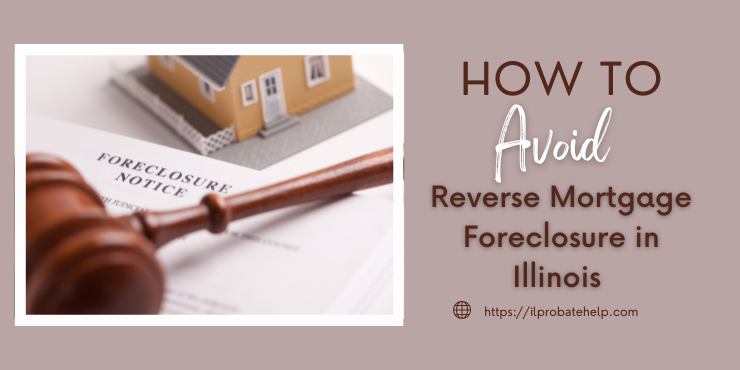
We have all seen the commercials for reverse mortgages, celebrity spokesmen touting how a reverse mortgage is a great way to help you live a better retirement.
These commercials are geared toward older homeowners, and they share all the benefits of a reverse mortgage. How you make no monthly mortgage payments, it’s tax-free cash, government insured mortgage, oh and the best part “you still own your home”. You can receive the cash in a lump sum or receive monthly payments.
These commercials seem to have the answer to all your financial problems. The promises made often seem too good to be true. But are they too good to be true?
What is a Reverse Mortgage?
A reverse mortgage is a program that allows homeowners who are 62 years or older to borrow money on the value of their home. This program is for homeowners who have a substantial amount of equity. Most are FHA insured HECMs.
The difference from a conventional loan is that the borrower isn’t forced to make payments on the money borrowed, but rather the repayment is deferred until either the borrower passes or when the home is no longer their primary residence.
Along with the commercials that advertise reverse mortgages to older Americans, we also hear stories from others about the negative effects of reverse home mortgages. American homeowners, or their families, have lost their homes entirely due to the lack of completely understanding the risks involved in a reverse mortgage.
What You Should Know Before Getting a Reverse Mortgage
The best way to protect yourself from the negative effects that can come with a reverse mortgage is to know what you are getting into ahead of time. It is always best to be completely aware of all the pros and cons before making a large financial decision.
Make sure you have someone with you to help you navigate all there is to know before signing on the dotted line and remember, you can cancel the contract up to three days after signing if you change your mind.
When beginning the process of a reverse mortgage, there will be an origination fee. The fee cannot be more than $2,500 or 2% of the first $200,000 of the home’s value plus 1% of the amount over $200,000.
There is a cap of $6,000 on the 1%. You will also pay closing costs that can be several thousand dollars due to items such as title insurance and recording fees.
You will also be required to pay insurance premiums. The FHA insurance protects you and the lender. You will also be charged a premium upfront of 2% of property value, plus a 0.5% annual premium of the mortgage balance.
Lastly, the lender can charge a monthly servicing fee if the loan has a fixed interest rate of up to $30. This also applies if it adjusts annually. There is a cap on the servicing fee of no more than $35 each month, also true for loans with a rate that adjusts monthly.
The servicing fee will be added monthly to your loan balance, or it can be included by the lender in the servicing fee in the mortgage rate. Remember, a fixed rate is only an option if you take the money from the reverse mortgage in one lump sum.
Here is an example based on borrowing $100,000 at a 4% yearly interest.
1st year: $104,000 is owed.
2nd year: $108,000 is owed.
3rd year: $113,000 is owed and so on….
Many people also may be unaware that if the homeowner moves out of the house for a 12-month period or longer, they will then be in default. If an unexpected long-standing illness of a year or more happens, the loan comes due even if the family and homeowner intend to go back.
If a couple obtains the reverse mortgage together, and one borrower passes or has to move to a long-term care facility, the co-borrower may still live in the home without the loan coming due until that co-borrower passes or leaves the home.

What Factors Cause a Lender to Foreclose on a Reverse Mortgage?
The entire balance of the reverse mortgage loan is due when one of the following trigger events occur. In Illinois, these trigger events are:
What Are The Options to Avoid Foreclosure?
To keep a home from going into foreclosure under a reverse mortgage, planning ahead is the best option. Creating a plan prior to any of these trigger events will alleviate the stress of dealing with the events themselves.
Loss Mitigation for Reverse Mortgages:
If the borrower is still alive, the borrower has the right to cure the default.
Tax and Insurance defaults:
Occupancy default:
Maintenance default:
Other options:
If the borrower of the mortgage passes away, the heirs have some choices:
In the event that the borrower passes, the lender can initiate foreclosure on the house in as little as thirty days. To be prepared, the borrower and family members should consider one of the following:
This will allow the heirs to sell the house without having to wait until the Estate goes through the probate process. In Illinois, the probate process can take anywhere from 6 months to a year, or longer if any issues occur.
And when there is a lender who has started the foreclosure process it is best not to waste any time.
FHA will give you 6 months to sell the house. You can also petition FHA for up to (2) 3 month extensions after the initial 6 months have passed.
Even if the sale proceeds do not cover the balance due, the Federal Housing Administration (FHA) doesn’t allow lenders to come after borrowers or their heirs for the difference of a reverse mortgage.
If a borrower, or borrowers move into an assisted living facility or nursing home, then the family should decide to either sell the house or refinance out of the reverse mortgage.
Because you know that the borrower will not be coming back to the house, and it will also stop the interest from accruing.
Final Thoughts:
The timelines of foreclosure can have a quick turnaround and you do not want to risk losing your family home or the equity in the home due to not understanding the fine print.
Losing your home to a process you did not fully understand can be devastating, especially in your senior years. Always make sure you are aware of the risks or ask for professional help before making a large financial decision.
You do not want to deal with a large burden while also dealing with a loved one passing or long-term illness. Protect yourself.
If you would like more information on the probate process in Illinois, please contact me for a no obligation consultation. I would be happy to discuss your specific situation and help you navigate these difficult waters.
My name is Maria Mastrolonardo, I am a Certified Probate Real Estate Specialist with RE/MAX Enterprises. This is ALL I do; I help guide families through the process of selling real estate in probate and I would be happy to help you as well.
Call me today at: (630) 248-6077, or email me at mmastrolonardo@remax.net
